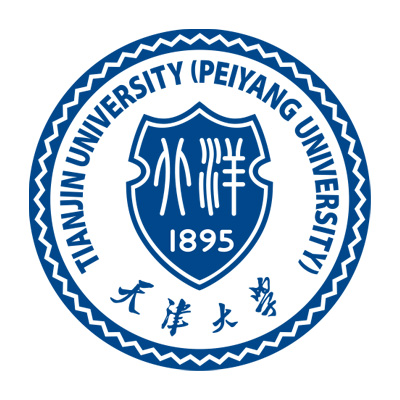NSS 2021
15th International Conference on Network and System Security
Tianjin, China
| 23 October 2021
Keynote Speakers

Abstract
In recent years, with the increasing demand for intelligent and personalized services, IoT devices have been widely deployed in the fields of healthcare, transpotation, smart grid, and building control. These devices not only bring unprecedented convenience to our daily life, but also bring new opportunities and challenges to the attacks and defenses of cyberspace. In terms of attacks, because smart devices are usually equipped with a variety of sensors and smart algorithms, they expose a much wider attack surface than traditional information systems. For defenses, the built-in sensors of smart devices greatly enhance the ability of IoT systems to collect information from the physical world, and facilitate a series of secure authentication methods for users and devices. In this talk, we will explore the research progress and latest practices in this field, report the latest results of our team, and envision the future development of IoT security.
Biography: Kui Ren is Professor and Associate Dean of College of Computer Science and Technology at Zhejiang University, where he also directs the Institute of Cyber Science and Technology. Kui’s research interests include Data Security, IoT Security, AI Security, and Privacy. He received many recognitions including Guohua Distinguished Scholar Award of ZJU, IEEE CISTC Technical Recognition Award, SUNY Chancellor’s Research Excellence Award, Sigma Xi Research Excellence Award, NSF CAREER Award, etc. Kui has published extensively in peer-reviewed journals and conferences and received the Test-of-time Paper Award from IEEE INFOCOM and many Best Paper Awards from IEEE and ACM, including ACM MobiSys, IEEE ICDCS, IEEE ICNP, IEEE Globecom, ACM/IEEE IWQoS, etc. His h-index is 80, with a total citation exceeding 36,000 according to Google Scholar. Kui is a Fellow of ACM and IEEE. And he serves on the editorial boards of many IEEE and ACM journals. He also serves as Chair of SIGSAC of ACM China Council, a member of ACM ASIACCS steering committee, and a member of S&T Committee of Ministry of Education of China.

Abstract
With the advancement of mobile computing and mobile sensing, the concept of sensing has been revolutionized across various application domains. There are two main categories of mobile sensing: contact-based and contactless. This talk will first show how to perform tangible user authentication on smart access systems (e.g., access to apartments, hotel rooms, and vehicles) by exploiting vibration sensing. In particular, the talk introduces the idea of extending user authentication beyond traditional touch screens to any solid surface for smart access systems. The authentication approach builds upon a touch sensing technique with vibration signals that can operate on surfaces constructed from a broad range of materials (e.g., tabletop and door panel). The talk will also demonstrate the privacy leakage caused by facial vibrations in emerging AR/VR applications and thus imposing great security vulnerabilities in AR/VR headsets. The talk will then present how to leverage WiFi sensing to provide contactless behavior-based user authentication. Specifically, we exploit fine-grained WiFi signals to capture unique behavioral biometrics residing in the user’s daily activities, without requiring any dedicated sensors or wearable device attachment. We integrate deep-learning based approaches with domain adaptation techniques to remove the environment and location-specific information contained in the collected WiFi sensing data. This helps to disentangle the behavioral biometrics for practical environment-independent user authentication. Finally, the talk will share some new research directions in securing smart homes and smart cities.
Biography: Yingying (Jennifer) Chen is a Professor of Electrical and Computer Engineering and Peter Cherasia Endowed Faculty Scholar at Rutgers University. She is the Associate Director of Wireless Information Network Laboratory (WINLAB). She also leads the Data Analysis and Information Security (DAISY) Lab. She is an IEEE Fellow. Her research interests include mobile sensing and computing, cyber security and privacy, Internet of Things, and smart healthcare. Her background is a combination of Computer Science, Computer Engineering and Physics. She had extensive industry experiences at Nokia previously. She has published 200+ journal articles and conference papers. She is the recipient of 7 Best Paper Awards from EAI HealthyIoT 2019, IEEE CNS 2018, IEEE SECON 2017, ACM AsiaCCS 2016, IEEE CNS 2014 and ACM MobiCom 2011. She is also the recipient of NSF CAREER Award and Google Faculty Research Award. She received NJ Inventors Hall of Fame Innovator Award and is also the recipient of IEEE Region 1 Technological Innovation in Academic Award. Her research has been reported in numerous media outlets including MIT Technology Review, CNN, Fox News Channel, Wall Street Journal, National Public Radio and IEEE Spectrum. She has been serving/served on the editorial boards of IEEE Transactions on Mobile Computing (IEEE TMC), IEEE Transactions on Wireless Communications (IEEE TWireless), IEEE/ACM Transactions on Networking (IEEE/ACM ToN) and ACM Transactions on Privacy and Security. She is active in conference organization including serving as the Technical Program Co-chair of IEEE INFOCOM 2022, ACM MobiCom 2018, ACM WiSec 2019, IEEE CNS 2016, and IEEE MASS 2013 and the General Co-chair of IEEE/ACM CHASE 2020, IEEE DySPAN 2019, and ACM MobiCom 2016. For more information, please refer to http://www.winlab.rutgers.edu/~yychen/.






